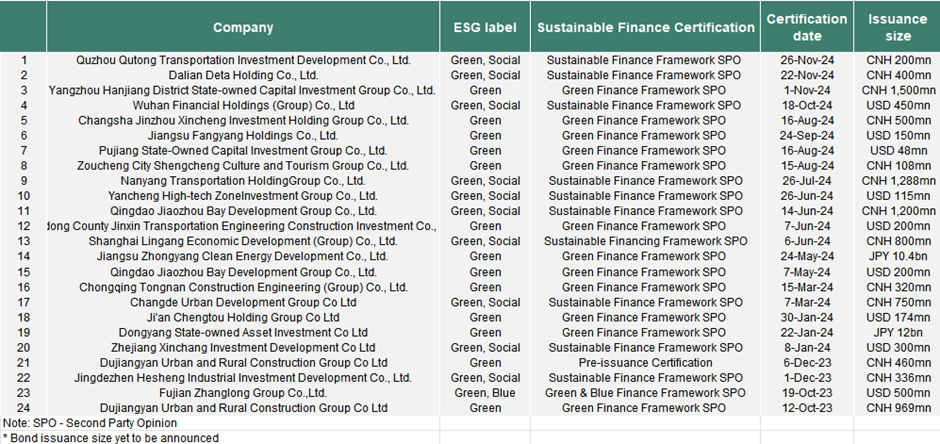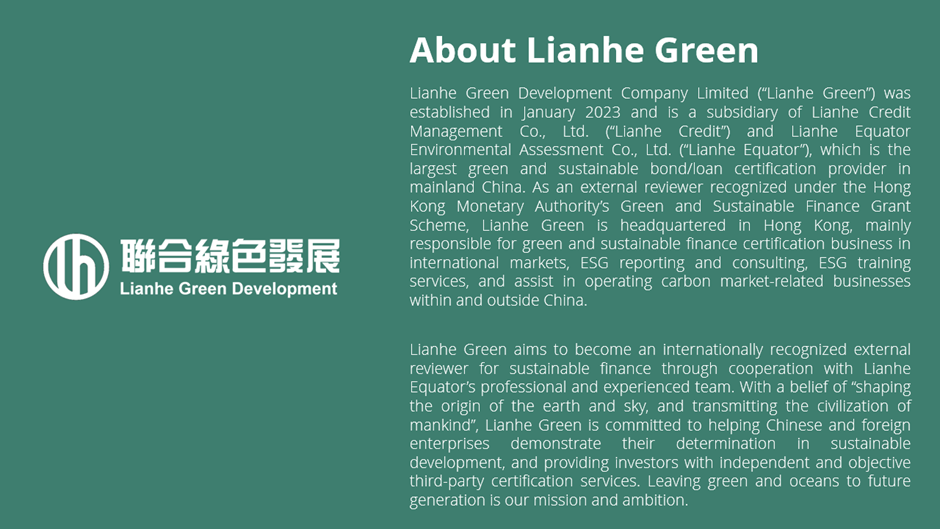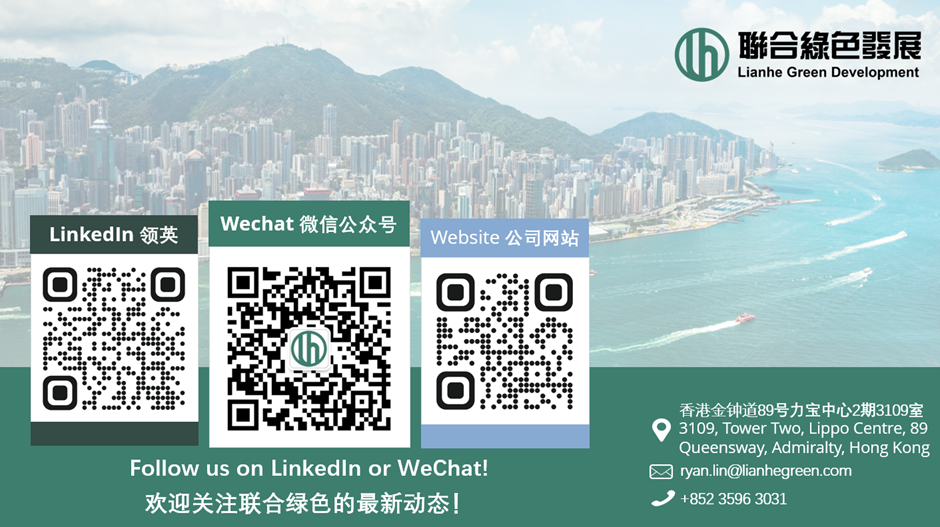所屬分類:新聞動態發佈時間:2025-01-24

Hong Kong China ESG trends
The Financial Secretary Attend World Economic Forum Annual Meeting in Davos, Switzerland
In the morning, Mr Chan attended a breakfast meeting organised by the Giving to Amplify Earth Action launched by the WEF, where he shared views on how to make effective use of finance to address various crises facing the planet. Using climate change as an example, he pointed out that there is a significant funding gap globally in responding to climate change, and thus countries should work to promote collaboration among the public, private and philanthropic sectors, so as to encourage private investments in green and transition projects. He highlighted that Hong Kong is a leading green finance hub in Asia, gathering financial institutions, professional services and talent with relevant expertise and experience. The thriving ecosystem of family offices, private equity funds as well as wealth and asset management is conducive to effectively connecting wealth with climate transformation projects. Mr Chan said Hong Kong looks forward to strengthening cooperation in this area with various economies.
Source: https://sc.isd.gov.hk/TuniS//www.info.gov.hk/gia/general/202501/22/P2025012200071.htm?fontSize=1
Lianhe Green Insight:
The views shared by the Financial Secretary of the Hong Kong Special Administrative Region at the World Economic Forum reflect the region’s strong support for and active promotion of green finance. He emphasized Hong Kong’s significant role in the field, highlighting it as a leading center for green finance in Asia. Initiatives such as the “Green and Sustainable Finance Grant Scheme” launched by the Hong Kong government in 2021, the “Pilot Green and Sustainable Finance Capacity Building Support Scheme” introduced in 2022, and the “Disclosure Roadmap” rolled out in 2024 demonstrate Hong Kon’s ongoing commitment to fostering the development of green finance. These measures aim to achieve sustainable development goals and to play a greater role in international cooperation.
International ESG trends
Trump to Exit Paris Agreement
In a highly anticipated move, newly inaugurated President Donald Trump confirmed plans to withdraw the U.S. from the Paris Agreement, as part of a new policy described by the White House as aimed at “ending Biden’s policies of climate extremism.”
The move marks the second time that President Trump pulled the U.S. out of the landmark international climate accord, having done so late in his first term. The U.S. returned to the Paris Agreement shortly afterward, with President Biden signing an executive order to rejoin the accord on his first day in office.
As part of a series of executive orders signed following the inauguration, Trump ordered the U.S. ambassador to the UN “to immediately submit formal written notification of the United States’ withdrawal from the Paris Agreement under the United Nations Framework Convention on Climate Change,” adding that the U.S. will consider the withdrawal of its obligations under the accord to be effective as soon as the UN notification is given.
Source: https://www.esgtoday.com/trump-to-exit-paris-agreement/
Lianhe Green Insight:
The implementation of the Paris Agreement is crucial for the global community to take collective action towards achieving sustainable development goals. As the world’s second-largest emitter of greenhouse gases, the United States’ decision to withdraw from the Paris Agreement for the second time means that during President Trump’s current term, the U.S. will not be bound by the United Nations Paris Agreement, thus not required to report its greenhouse gas emissions annually, and its responsibility to provide financial support to developing countries will also be reduced.
This move will greatly hinder the global achievement of common climate goals and deal a severe blow to international climate diplomacy, forcing other countries to step up their efforts to address climate issues. Under such circumstances, the U.S. action provides opportunities for cooperation between other major economies such as China and the European Union to promote global climate action and green development. As leading economies, China and the EU are committed to taking on the important responsibility of mitigating climate change and establishing closer cooperative relationships. However, in the long run, even if the U.S. move affects the global community’s efforts to combat climate change, the world has already recognized the importance of decarbonization and environmental protection, and the overall direction of mitigating climate change will not waver.
IEA Forecasts All-Time High in Nuclear Power Generation by 2025
The IEA’s recently released report, “The Path to a New Era for Nuclear Energy” indicates that global nuclear power generation is expected to set a historical record by 2025. The report emphasizes that nuclear energy will hold a significant position in the future energy mix if key challenges such as costs, construction periods, and financing can be effectively addressed.
The report notes that global interest in nuclear power is experiencing a new surge not seen since the oil crisis of the 1970s. Currently, more than 40 countries have expressed support for expanding the application of nuclear energy. Worldwide, 63 nuclear power units are under construction, with a total installed capacity exceeding 70 million kilowatts, marking the highest level since 1990. Over the past five years, approximately 15% of the world's nuclear power units (over 60 units) have decided to extend their operational lifespan. In the past three years, annual investment in the nuclear energy sector has grown by nearly 50%, surpassing 60 billion U.S. dollars.
Source: https://china-nea.cn/site/content/48457.html
Mainland China ESG trends
NDRC and Others Release “Catalogue of Green Technology Promotion (2024 Edition)”
On January 20th, the National Development and Reform Commission (NDRC) and other departments issued the “Catalogue of Green Technology Promotion (2024 Edition)”; it selected 112 advanced green technologies across seven major industries including energy conservation and carbon reduction, environmental protection, resource recycling, green and low-carbon energy transformation, ecological protection and utilization, green infrastructure upgrading, and green services. The catalogue details the technological content, main technical parameters, practical application cases, and ecological benefits of each technology. Relevant parties can use this information to understand the main principles and direction of the technologies, as well as their application scenarios and implementation effects, and promote and utilize them in accordance with their own circumstances.
Source: https://www.ndrc.gov.cn/xxgk/zcfb/tz/202501/t20250120_1395788_ext.html
Shanghai Stock Exchange Officially Launches “Self-Regulatory Guideline No.4 for Listed Companies on the Shanghai Stock Exchange — Compilation of Sustainability Reports”
On January 17th, according to news from the Shanghai Stock Exchange (SSE), under the overall guidance of the China Securities Regulatory Commission (CSRC), the SSE has officially released the “Self-Regulatory Guideline No. 4 for Listed Companies on the SSE — Compilation of Sustainability Reports” and the “Self-Regulatory Guideline No. 13 for Science and Technology Innovation Board Listed Companies on the SSE — Compilation of Sustainability Reports.” These guidelines aim to assist listed companies in better understanding and applying the previously issued “Self-Regulatory Directive No. 14 for Listed Companies on the SSE — Sustainability Reports (Trial),” and to continuously improve the quality of sustainability (ESG) information disclosure.
Source: https://www.sse.com.cn/lawandrules/guide/stock/zbxxpljg/ssgszljg/c/c_20250117_10770284.shtml
Central Committee of the Communist Party of China and State Council Issue “Rural Revitalization Plan (2024-2027)”
Recently, the Central Committee of the Communist Party of China and the State Council issued the “Rural Revitalization Plan (2024-2027)” and issued a notice pointing out the need to strengthen product innovation and marketing efforts targeted at rural areas, support the introduction of new energy vehicles and green smart home appliances to rural regions, thoroughly implement the consumer goods trade-in initiative, encourage information consumption, and promote consumption upgrading. It also calls for optimizing energy supply, consolidating and upgrading rural power grids, and developing clean energy sources.
Source: https://www.gov.cn/zhengce/202501/content_7000493.htm
NEA Issues “Guidelines for the Development and Construction of Distributed Photovoltaic Power Generation”
To standardize the development and construction management of distributed photovoltaic (PV) power generation and promote its high-quality development in line with new circumstances and requirements, the National Energy Administration (NEA) has revised the “Interim Measures for the Management of Distributed Photovoltaic Power Generation Projects” (Document No. 433 [2013] of NEA) and has formulated the “Guidelines for the Development and Construction of Distributed Photovoltaic Power Generation.”
Source: https://www.nea.gov.cn/20250123/112c5b199c5f45dd8e7ac93c9f5e4eaf/c.html
Sustainable Finance Certification Public and Completed by Lianhe Green



